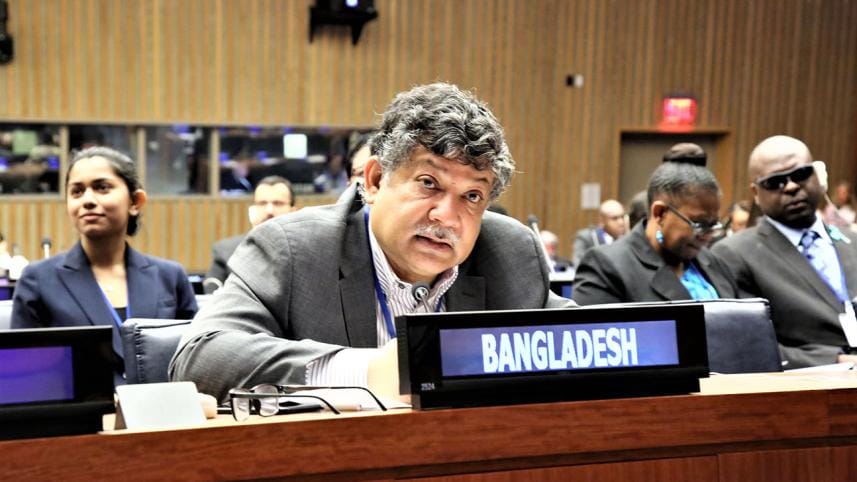‘Help Bangladesh reach desired level of disability inclusion’

Bangladesh has urged the development partners to help the country reach its desired level of disability inclusion.
Bangladesh’s Permanent Representative to the UN, Ambassador Masud Bin Momen, described the country’s initiatives, including the one to provide allowances for all of the 1.4 million differently abled persons from July. Currently, one million of such people are getting such allowance.
He was speaking at the 12th Conference of the State Parties to the Convention on the Rights of Persons with Disabilities (CRPD) at UN Headquarters in New York Thursday, according to a statement.
At national level, the government has put special emphasis for the development and inclusion of the persons with disabilities in the journey towards inclusive socio-economic development.
Bangladesh has also updated national legislations in line with the CRPD and Agenda 2030, the diplomat said, adding that Saima Wazed Hossain, daughter of Prime Minister Sheikh Hasina, has been an ardent advocate in this field.
As the WHO Southeast Asia’s Goodwill Ambassador and Chairperson of National Advisory Committee on Autism, she is championing awareness-building on autism in particular and disabilities in general in the country, the region and beyond.
Ambassador Masud cited that Bangladeshi differently able youth won 22 gold medals in Special Olympics 2019 in Abu Dhabi. Vashkar Bhattacharjee, a visually impaired Bangladeshi youth, developed Bangladesh’s first Accessible Dictionary in four forms for people with visual, print and learning disabilities.
These examples are greatly inspirational for their peers to strive for empowerment,” he said.
“Through ‘Digital Bangladesh’ campaign we are doing our bit. But we need more partnerships to reach desired level of ‘disability inclusion’ for which our development partners should come forward,” he said.



 For all latest news, follow The Daily Star's Google News channel.
For all latest news, follow The Daily Star's Google News channel.
Comments